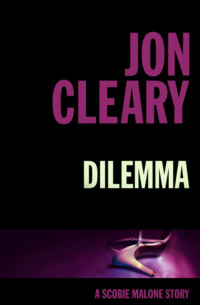
Полная версия
Endpeace
Malone said, ‘Exactly what is your position in all this, Derek?’
‘You mean, how do I feel about selling? I’m against it, dead against it.’
‘How much – clout do you have?’
Derek shrugged. ‘No more than my brother and sisters. I’m executive editor and publisher of the newspaper and I’m deputy-chairman of the whole group. But that means zilch when it comes to voting.’
‘Your father was chairman?’ Derek nodded. ‘And the rest of the family?’
‘Nigel and my sisters are directors on the group board.’
‘The in-laws, too? And the grandchildren?’
‘They just run – what do they call it in American football? – they run interference. You’d go a long way to meet a more interfering lot of buggers, including the kids.’
Malone was surprised at the amount of venom Derek showed; but he made no remark on it. ‘Is there a buyer for the business?’
Derek looked at Van Dieman again, left it to him: ‘Let’s say there is strong interest.’
‘Who?’ Van Dieman said nothing and Malone snapped, ‘Come on, you’re fartarsing again! We’re here because of a murder, not some bloody business deal! Who?’
‘Metropolitan Newspapers,’ said Derek. ‘From London. That is why Ivor and Beatrice Supple are here. She’s deputy-chairman – chairwoman, chairperson, whichever you like – she’s here for Metropolitan. There are two lawyers and two bankers with her, they’re at the Sheraton-on-the-Park. But that’s not for publication,’ he said, apparently in his status as executive editor and publisher.
‘Pull your head in, Mr Huxwood,’ said Malone officially and officiously; he was getting stiff-necked about these two sitting opposite him. ‘I’m not in the habit of shooting off my mouth to the media.’
Derek backed down. ‘Sorry.’
Then there was a knock at the garden-room door and the butler, Krilich, looked in. He was a tall middle-aged man, dark-haired, heavy-browed and thick-shouldered; even last night Malone had thought he looked more like a builder’s labourer than what he had imagined a butler should look like. This morning he was in shirtsleeves and a blue-and-black striped vest, but wore a tie, a black one.
‘Assistant Commissioner Zanuch is here, Mr Huxwood.’
2
Assistant Commissioner Bill Zanuch did not look uncomfortable in this big house. The air of arrogance was there as always, the familiarity with top company as apparent. Malone had once described him, though not in his presence, as being so far up himself he had turned ego into a pretzel. In the latest of the Service’s shuffling of senior ranks, he had been moved from AC Administration to AC Crime, a criminal act in itself in Malone’s opinion. Zanuch was very much hands-on, to the point of throttling those under him. He and Malone in particular were not mates.
‘Hello, Bill,’ said Derek Huxwood, rising from the couch. ‘You here to take charge?’ He avoided looking at Malone as he said it.
‘No, Derek. I’m here to offer condolences – from the Commissioner, too. I’m not here to take charge.’
No, thought Malone, he’s not here to take charge: in the same way that General Schwarzkopf didn’t take charge of the Gulf War, as Napoleon went to Moscow for the snow sports.
‘Any leads, Inspector?’
‘Not yet, sir.’
‘Well, go ahead with whatever you were doing. I’ll just sit in.’ He sat down, arranged the crease in his trousers, undid the button of his double-breasted suit so there would be no strain on it, laid his police tie, silk of course, flat on his white shirt. He never wore anything that showed a label, he aspired to be too wellbred for that, yet somehow he gave the distinct impression that everywhere on him was a label, only the best, waiting to be displayed. ‘I’m here to help.’
But Malone wasn’t going to fall for that. ‘Sergeant Clements and I are finished here for the moment, sir. We have to see others in the family.’
‘Who?’ said Huxwood, irritation plain. ‘I can tell you everything you want to know –’
‘It’s just routine, Mr Huxwood,’ said Malone, waiting to be interrupted by Zanuch. But the Assistant Commissioner said nothing and Malone went on, ‘We like to interview everyone at the scene of the crime.’
‘Scene of the crime! Christ –’ Derek Huxwood looked at Zanuch as if expecting him to correct his junior officer. Then abruptly his broad shoulders slumped and he gestured futilely. ‘Why the hell am I protesting? It’s what we’ll call it in the paper tomorrow – the scene of the crime ... Go ahead, Scobie. Talk to the others. They’re all somewhere, here or in the other houses.’
‘Your mother?’
‘She’s upstairs in her room. Leave her – please?’
Malone hesitated, then nodded. He and Clements said goodbye to Van Dieman and Zanuch and left the garden room. Outside in the hallway they met Kate Arletti, looking even more untidy than ever. ‘Having a hard time of it, Kate? You’ve lost another button off your shirt.’
She looked down in surprise. ‘So I have! Sorry, sir ... This family is worse than any Italian family I’ve ever met. They can’t make up their minds whether to grieve or to argue.’
‘Where’s the elder sister, Sheila? And her husband?’
‘They’ve gone back to their own house.’
‘Righto, you and Russ continue with the others. I’m going over to Little House Two. Russ, give me the envelope with that scrap of paper.’
He went out through large French doors on to a wide stone terrace that ran the entire breadth of the main house, crossed half an acre of lawn, went through an opening in a head-high privet hedge and came to Little House Two.
The main house had been built in the 1860s, a hodgepodge of English country house, Roman villa and Colonial homestead, as if the architect, uncertain of his surroundings, had gone on a drunken spree yet had somehow produced something that was not an eye-sore. The two smaller houses had been built a hundred years later and the style, with just minor modifications, copied. The three stood in line facing north across the tiny bay, resembling nothing more than a slapdash Nash project that, like the convicts, had been transported and survived the change.
Ned Custer met Malone at the heavy oak front door. ‘I saw you coming, I’ve been expecting you. Finished with that lot over there? Van Dieman there, putting his oar in? Best lawyer in town. Pity he knows it better than anyone else.’
‘How’s Mrs Custer?’
Custer was leading the way into a large comfortable room that looked out past a lawn and a jetty, where a yacht was moored, to the bay. He was dressed in lightweight blue trousers, a blue-and-white cotton jumper and espadrilles; but at least his face showed appropriate gloom. ‘Not the best. We don’t get on, the family, but Jesus wept – murder?’
‘What makes you say that?’
‘What?’
‘You implied someone in the family committed the murder.’
Custer waved his hands in front of him, as if beating off smoke. ‘No, no! Christ, I didn’t mean anything like that – oh darling. Here’s Scobie, come to interrogate us.’
Spoken like a true lawyer.
Sheila was more appropriately dressed; she was not in funeral black, but at least she didn’t look as if she were ready for a yachting picnic. She was in dark blue linen, skirt and shirt, with dark blue casual shoes. Her glasses did not hide the fact that she had been weeping. Without make-up she looked older than she had last night.
‘Sit down, sit down.’ Custer bustled about, like a front-row forward looking for the ball that had come out on the wrong side of the scrum. ‘Drink? Coffee?’
‘Nothing, thanks.’ Malone sat down in a comfortable chair, one of four in the room meant to relax their occupants; this was a room obviously meant for relaxation, the afternoon read, the pre-dinner drink. It was, Malone guessed, what the Custers called their family room, though the furnishings were much richer than he had seen in other family rooms. One narrow wall was taken up with an entertainment ensemble: television set with the largest screen Malone had ever seen, video recorder, tape-deck and shelves full of videos, tapes, CDs and even a stack of old LPs. Yet the room showed no wear and tear, it was a room for a phantom family. Sheila was already seated and Custer now dropped into a chair beside her, but neither of them looked comfortable. ‘All we’re after at this stage is what you may know of last night.’
‘You mean the murder? Bugger-all. Harry had gone to bed when we left.’
‘What time was that?’
‘I never wear a watch,’ Custer said and looked at his wife.
‘Midnight,’ she said. ‘What time is my father supposed to have been – ?’ Her voice was unsteady, she didn’t finish the sentence.
‘Around midnight, give or take an hour.’
‘So whoever killed him could have been in the house while we were there?’
Custer got up, poured himself a whisky, straight, no ice, no water or soda.
‘If it was an intruder –’
‘Of course it was a bloody intruder!’ The drink splashed in Custer’s hand as he sat down heavily.
‘What’s the security like over at the main house?’
‘Adequate.’ Custer sipped his whisky. ‘That’s about all you can say for any security in domestic circumstances – you’d know that as well as I do.’ Malone nodded. ‘We employ two security firms to watch the estate – and each other. But there was a break-in a coupla years ago – they caught no one – so it could easily have happened again. Burglars not so long ago didn’t carry guns or knives. But now ...’
There had been several incidents in the past year of murder by intruders, householders shot or knifed, people worth not one-hundredth of the Huxwood wealth.
‘Is there any way up to the first floor over there besides up the main staircase in the hallway?’
‘Of course.’ Sheila was beginning to regain some composure. ‘There’s a rear stairwell for the staff. And there’s all that latticework on the east wall. We’ve wanted to pull it down, but Mother wouldn’t allow it.’
‘What’s that there for?’
‘The roses, of course. The climbing roses, the Chinese hybrids – don’t you know what Malmaison is famous for?’
‘I thought it was – famous, if you like, for the Huxwoods.’
‘Nicely put, Scobie,’ said Custer. ‘I’d have said notorious.’
‘La Malmaison was where Napoleon’s Josephine lived. She was the one who really popularized rose-growing in Europe, she had roses brought in by the boat-load from all over, China, Turkey, everywhere. My great-great-grandfather, who built the original house, was a great admirer of Napoleon and Josephine. And he loved roses. I take it you’re not a gardener?’
‘I grow camellias and azaleas, they’re easy. But no, I’m not a gardener. Burke’s Backyard leaves me cold,’ he said, naming one of television’s top rating shows.
‘And,’ said Custer, looking halfway to being half-drunk again, on one glass of whisky, ‘you’re not a student of Sydney’s history?’
‘Not this side of town, no. Ask me about the arse-end of Sydney and I’ll give you chapter and verse. Sorry,’ he said to Sheila.
‘Take it easy, Ned,’ Sheila told her husband, then looked back at Malone. ‘We were saying ... Yes, it would be easy to get up to the first floor, where the bedrooms are. Someone going up the east wall might get scratched or pricked, but not if he wore gloves.’
Malone took the plastic envelope from his pocket, extracted the scrap of notepaper with his tweezers. He held it out: ‘I can’t let you touch this, not till it’s been fingerprinted. It was found in your father’s hand, as if it had been torn off a full sheet. Do you recognize the notepaper?’
Both the Custers leaned forward; then they glanced at each other before Sheila said, ‘It’s the family’s – well, Malmaison’s. My mother orders it every year through the company – it’s special paper. She likes us all to use it, so we do. Boxes of it are delivered to us, Derek, Nigel, my sister and I, every Christmas.’
‘Did you use it to write your father a note?’
‘No.’ She was taking off her glasses while she answered, so he didn’t see her eyes at that instant. Then she was polishing the glasses, carefully, giving them her attention. ‘I was not in the habit of writing my parents notes. After all, they’re just over there –’ She waved vaguely.
‘We think this may have been more than just a note. There’s a very strong No scrawled on it in red pencil.’
‘That wouldn’t be Harry,’ said Custer, getting up to pour himself another drink. ‘He wasn’t the type for expressing himself strongly. He was always the mediator, he liked to take options. He was a bugger for that,’ he said as if to himself.
‘So it could’ve been anyone in the family who wrote it?’
‘I suppose so,’ said Sheila, reluctantly, it sounded.
‘Don’t forget the kids.’ Custer came back to his chair. ‘The grandkids. They’re all literate, very literate. And numerate, too. All interested in –’
‘That’s not fair, Ned,’ said Sheila, as if this had been a continuous argument. Then Malone remembered that her child was Custer’s step-child. Maybe this sort of argument went on in many families. ‘They’re not all interested in money, not all of them.’ Her tone said: not mine.
Malone had had this feeling once or twice before, the urge to get up and walk away from a case. Detectives are driven to solve a murder, as doctors are towards a cure. But sometimes a murder becomes obscured by the atmosphere that surrounds it; the detective becomes at risk to other dangers. One’s own values had to be protected, there was a limit to objectivity.
‘How many children do you have, Mrs Custer?’
‘Just one, a girl.’
‘She lives here?’
‘No, Camilla has her own flat. She’s at work today – she works at 2HP, she’s learning the ropes. We – that is, Huxwood – own the station,’ she explained.
‘How can you do that? With the rules against cross-media ownership in the same State?’
‘I wouldn’t know,’ said Sheila, but she did know.
Beside her Custer grinned. ‘Don’t ask. You know the old one, about friends in high places. The media barons in this country have got that sort of friendship down to a fine art.’
‘Careful, Ned,’ said his wife.
‘You mentioned money,’ said Malone, ‘Would you sell Huxwood Press?’
Sheila squinted, put her glasses back on; Custer held up his glass, as if looking for an answer in the half-inch of whisky still in it. Then he said, ‘We’d probably sell. Anything for fucking peace and quiet.’
‘Who told you the Press is for sale?’ said Sheila.
Malone stood up. ‘We’re not answering questions at this stage. Just asking them. I’ll be in touch.’
He made his own way out of the house, crossed the lawn again and went round to the east wall of the main house. The roses were there, as Sheila had said; and the latticework up the wall. The gardener was also there, the long-handled shovel he had brandished down on the shore now driven into the earth, a pair of secateurs in his hand. He looked at Malone: ‘Lady Huxwood wants fresh flowers in the house every day. You think I ought to, today?’
‘I wouldn’t. You’re –?’
‘Eh? Oh yeah.’ He appeared to look closely at Malone for the first time. ‘You’re one of the Ds?’
Malone introduced himself.
‘Oh sure, I’ve read about you a coupla times. You work for someone publishes a newspaper, you read it all the way through. Just in case you get a mention, even in the obituaries. It’ll be interesting to see what the Old Man’s obit says ... I’m Dan Darling. Or Darling Dan, as the Old Lady calls me. A poor bloody joke, but most of her jokes are. She doesn’t have much chop for the intelligence of the working class.’
He said it without emphasis, neither bitterly nor with affection. He was in his sixties, a grizzled bear of a man with the face and arms of someone who had spent the best part of his life in the sun and, by some miracle, escaped the rat-like nibbling of sun cancers. He had eyes and mouth of strong opinions and Malone wondered how he got on with Lady Huxwood.
‘The feller from Rose Bay has already been around here, looking for footprints, he said. There’s nothing.’
‘Nothing on the latticework?’ The gardener shook his head. ‘If it was an outsider, how d’you reckon he got upstairs?’
‘Up the back stairs. That door’s never locked. All the bloody security, costs a bloody fortune, and the back door’s always left unlocked.’
‘Why’s that?’
Darling shrugged. ‘Beats me. Ask the Yugoslavs, the butler and his missus.’ There was a sudden bedlam of birds in a nearby tree; it went on for almost half a minute, then the birds were gone as suddenly as they had come. The gardener spat into the dry soil at his feet. ‘Bloody foreigners.’
‘Who?’ Dan Darling sounded like Con Malone, the xenophobe from way back. Malone had grown up listening to his father complaining about ‘bloody foreigners’.
‘The birds. They’re Indian mynahs. Taking over everything.’
Malone said off-handedly, ‘Do the family fight like those birds?’
Darling squinted at him sideways, but still challengingly. ‘You don’t expect me to gossip about the family, do you? Christ, I’m family, too. So the Old Lady is always telling me.’
‘How long have you been here?’
‘Forty-two years. I was a printer’s apprentice at the Chronicle, in my last year. I got my hand caught in the rollers –’ He held up his left hand and for the first time Malone saw how maimed it was, an ugly stump-fingered fist. ‘I never went back, I was scared shitless of the rollers. Sir John, Harry’s father, he was the boss then. He gave me a job here as under-gardener and I fell into it like a pig into muck – I didn’t know it, but that was what I wanted to be, a gardener in a garden like this.’ He waved his good hand, the one holding the secateurs, around him. ‘The paper’s gardening expert, she comes out to see me whenever she’s got a problem.’
‘You do it all on your own?’ Malone looked around: the gardens were more extensive than he had thought.
‘No, I’ve got a young bloke works for me. Two of us are enough. I been here all them years, I’ve got everything under control.’
‘Where’s he?’
‘Well, I dunno. He ain’t come in this morning, ain’t rung. I can’t say it’s not like him, he’s only been here a coupla weeks. I dunno him that well.’
‘What’s his name?’
‘Dwayne Harod. His dad’s a Turk, he says, his mum’s a Lebanese. He lives out in Marrickville with an uncle and aunt. Dwayne’s an old Turkish name, I gather.’ A crack of a grin, dry as an eroded creek bank.
‘So I wonder why he didn’t come in today, of all days?’
‘He’d of heard about it on the radio. He’s pretty quiet, maybe he just wanted to miss all the commotion. Maybe he ain’t a stickybeak, like them out there.’ He gestured towards the launchful of photographers, now retreating like other, earlier invaders who had been repelled by the natives. ‘I wouldn’t worry about Dwayne, you got enough on your plate. You think flowers would be outa place in the house today?’ He snapped the secateurs, as if they were used every day and he hated the thought of interrupting the routine.
‘Not today, Dan. I’ll be in touch. They smell beautiful, though.’
As he walked round the corner of the east wall he heard a sound coming from an open window on the first floor. He wasn’t sure whose room it was, but it was in the main bedroom wing. The sound was a low moaning, faintly ululating, a primitive murmur of grief, almost animal-like.
3
Assistant Commissioner Bill Zanuch moved around the Big House without hurrying, with the proprietorial air of an old friend or a bailiff. He had his hands clasped behind his back, a habit he had adopted since he had, several years ago, been assigned to accompany Prince Charles on another Royal visit to Australia. It had been a characteristic of the Duke of Edinburgh, the prince’s father, and the prince himself had adopted it. Lately, however, Zanuch had noted from newsreels that the prince had moved his hands in front of him, where they nervously wove patterns in the air as if practising argument with his estranged wife. The Assistant Commissioner had none of the Royal problems; he had not made a nervous gesture since kindergarten and even there the other infants had known who was Number One.
Socially he had never aimed higher than God; he always felt that he fitted in. Wherever he went in the city’s social circles he was treated as an equal amongst equals, proving that flattery is no burden if one leaves others to carry it. He knew, just as the prince did, who would be king one day. Soon, maybe just a year or so down the track, he would be Commissioner. The thought did not make him giddy, since he had been tasting it ever since he had been promoted to sergeant, but he savoured it every day.
He stood outside the bedroom door listening to the low moaning coming from inside. He was not insensitive, but he knew Phillipa Huxwood would have to be interviewed and it was better that he do it rather than one of the five or six detectives still on the estate. After all, he could talk to her as an equal.
But first he moved along the hall to the next door, which was open. He had never been upstairs here, but this, he guessed, was Harry Huxwood’s room. He went in, ducking under the Crime Scene tape across the doorway. Another tape was strung round the four-poster bed, like a decoration from some old wedding-night bed.
Then the door to the adjoining room opened and Phillipa Huxwood stood there. Her face was even gaunter than usual, her eyes were red from weeping; but her carriage was still stiff and straight, her voice as firm as ever: ‘Do they have to put that ridiculous piece of ribbon on the bed?’
‘I’m afraid so, Phillipa. How are you?’
She waved a hand, almost a dismissive why-do-you-ask? ‘It’s unbelievable, isn’t it? I’ve been laying there –’
She used the Americanism. Up till her late teens she had lived a nomadic life with her archaeologist father and travel-writer mother; she still threw in local usage like postcards, as if to show she had been around. When she used a foreign phrase the accent was always immaculate, no matter what the language. Yet she wrote to reporters and anchor-people on the corporation’s radio and television stations who said ‘d-bree’ for ‘debris’ and used other Americanisms. She was rigid in her inconsistency, as despots are.
‘How are the others taking it?’ She led him back into her own room, seated herself in what he took to be her favourite chair by a window that looked down on the rose gardens.
‘I’ve only seen Derek,’ he said. He remained standing, aware of the disorder of her room, which surprised him; he had always thought of her as a meticulously neat person. But her bed was rumpled, the sheets twisted as if she had writhed in them in a frenzy. Her clothing, her dress and underwear, were thrown on the second chair in the room; the underwear, he thought, looked skimpy for a woman of her age. There was also a couch, an antique chaise-longue, but it was against a far wall; he could not seat himself there and talk to her across the width of the room.
‘How is Derek? Shocked?’
‘Of course.’
‘When I saw Harry –’ She closed her eyes, was silent for a moment, then she opened them. ‘I’m alone now, Bill. What do I do?’
He knew she didn’t want an answer. They were acquaintances, not friends, which is how it is in half of any large city’s social circles. He had known nothing of the intended selling of the publishing empire till Derek had filled him in this morning. What he knew of this family, even though he had been coming here for years as a dinner or luncheon guest, had been gleaned from observation and not from confidences.
‘How long have we known you?’ Her mind, it seemed, was shooting off at tangents this morning.
‘Twenty-five years.’
She looked at him in astonishment. ‘You’re joking!’
‘No. I first came here twenty-five years ago on a police matter –’
‘Ah.’ She nodded, was silent a while. He thought she was going to say no more, then she went on. ‘There was mystery then, too, wasn’t there? This is a mystery, Bill. Or is it?’ She glanced sideways at him, almost slyly.









